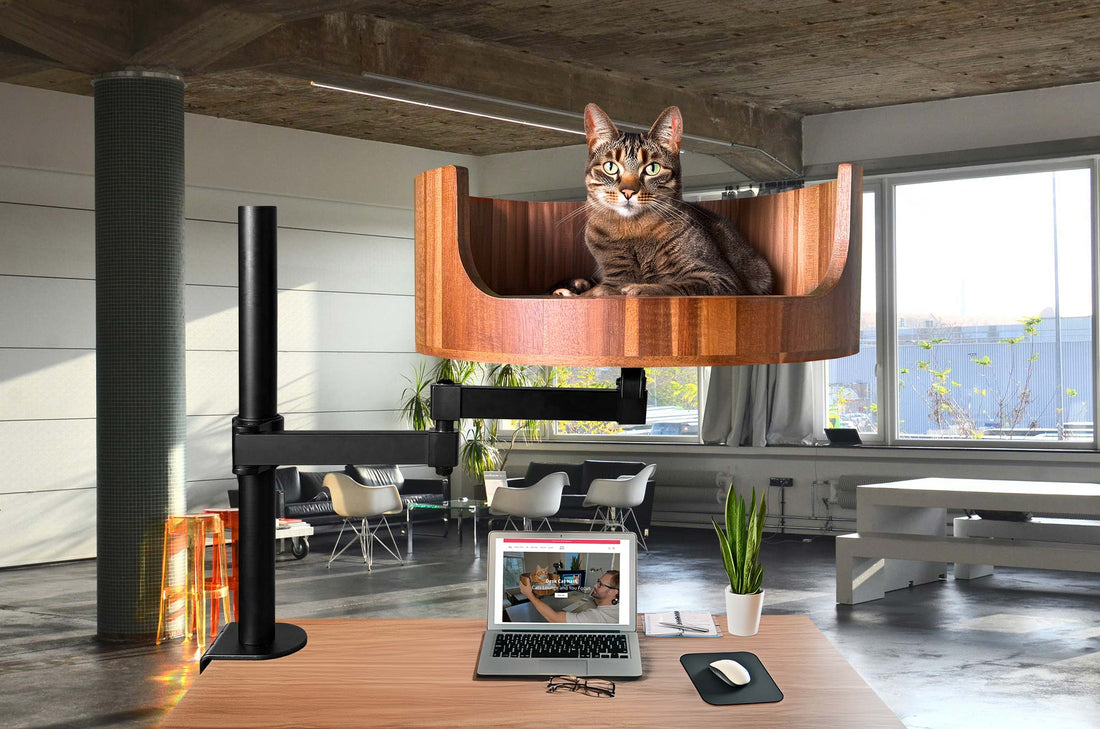
Is My Cat Sneezing? Understanding Feline Allergies
Share
As a cat owner, it can be quite alarming to see your feline friend sneezing. But before you rush to conclusions or panic, it's important to understand that just like humans, cats can also experience allergies. In this article, we will delve into the world of feline allergies to help you better understand why your cat may be sneezing and how you can provide relief.
From pollen and dust mites to certain foods and even some grooming products, cats can develop allergies to a variety of substances. We will explore the common signs of feline allergies, such as sneezing, itching, and watery eyes, as well as the different triggers that can cause these reactions in your cat. Additionally, we will discuss how to best manage your cat's allergies, including tips on creating an allergen-free environment, consulting with a veterinarian for proper diagnosis and treatment, and potentially adjusting your cat's diet or lifestyle to help alleviate their symptoms. By the end of this article, you will have a better understanding of feline allergies and how to ensure your cat stays happy and healthy.
1. Sneezing in cats can be a sign of allergies, which can be triggered by a variety of substances such as pollen, dust, or even certain foods.
2. Other symptoms of feline allergies include itching, coughing, and watery eyes, which can be distressing for your pet.
3. It is important to consult with a veterinarian to determine the cause of your cat's allergies and develop a treatment plan.
4. Treatment options may include dietary changes, allergy testing, and medication to alleviate symptoms and improve your cat's quality of life.
5. By understanding and managing your cat's allergies, you can help them live a healthier and happier life.
Feline Allergy Symptoms
When it comes to understanding if your cat is sneezing due to allergies, it's important to be able to recognize the common symptoms. Some of the signs to look out for include frequent sneezing, watery or itchy eyes, coughing, wheezing, runny nose, and skin irritations. If your cat is exhibiting any of these symptoms regularly, it's best to consult with a veterinarian to determine the cause of these allergies.
Causes of Feline Allergies
There are various factors that can contribute to feline allergies. Some common allergens that can trigger allergies in cats include pollen, dust mites, mold, certain foods, and fragrances. It's important to pay attention to your cat's surroundings and any changes in their environment that could be causing allergic reactions. Identifying the specific allergen causing the reactions is crucial in determining the best course of treatment.
Diagnosing Feline Allergies
Diagnosing feline allergies can be a complex process that may require the help of a veterinarian. They may conduct a physical exam, allergy testing, or recommend an elimination diet to identify the specific allergen causing your cat's symptoms. It's important to follow the vet's recommendations closely and keep track of any changes in your cat's symptoms to provide the necessary information for an accurate diagnosis.
Treating Feline Allergies
Treatment options for feline allergies may vary depending on the specific allergen causing the reactions. Your veterinarian may recommend antihistamines, corticosteroids, allergy shots, or dietary changes to manage your cat's allergies. It's important to follow the treatment plan provided by your vet and monitor your cat's symptoms for any improvements or worsening conditions. With proper care and management, feline allergies can be effectively controlled to ensure your cat's well-being.
Frequently Asked Questions
Why is my cat sneezing?
There are many reasons why your cat may be sneezing, including allergies, respiratory infections, foreign objects lodged in the nasal passages, or dental issues. It is best to consult with your veterinarian to determine the underlying cause of your cat's sneezing.
Should I be concerned if my cat is sneezing?
Occasional sneezing in cats is usually nothing to worry about, as it could be due to dust or other minor irritants. However, if your cat is sneezing frequently, has discharge from the nose or eyes, is lethargic, or has a decreased appetite, it is best to seek veterinary advice.
Will the Desk Cat Nest help with my cat's sneezing?
The Desk Cat Nest is designed to provide a cozy and comfortable space for your cat to rest and relax. While it may not directly address the underlying cause of your cat's sneezing, providing a stress-free environment can help support your cat's overall health and well-being.
In conclusion, choosing a Desk Cat Bed can significantly help with your cat's sneezing issues. The elevated design of the bed keeps your feline friend off the floor, away from dust and allergens that may be causing the sneezing. Additionally, the comfortable and cozy cushioning of the bed provides a clean and safe sleeping environment for your cat, further reducing the chances of irritants triggering sneezing fits. Investing in a Desk Cat Bed is a valuable choice that will not only improve your cat's health but also provide them with a comfortable and stylish place to rest.



















































